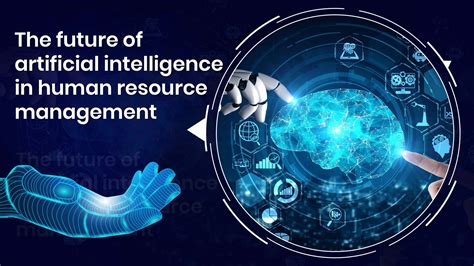The world of Human Resources is undergoing a significant transformation, as artificial intelligence (AI) becomes increasingly integrated into business practices. This integration is not just about efficiency and innovation but also about striking the right balance between technology and the human touch.
Charlie Frost, Senior Consultant and AI expert at LACE Partners, emphasizes the importance of this balance. He notes that while some organizations are still in the planning stages of incorporating AI into HR processes, others are already diving headfirst into experimentation. One particular battleground for AI in HR is recruitment, where companies and job seekers find themselves in an ‘AI arms race.’
Expert Insight:
“The key challenge with AI adoption in HR lies in ensuring it enhances rather than replaces human interactions,” says Charlie Frost.
As businesses navigate this new landscape, trust emerges as a crucial factor. Employees’ trust in AI varies across different aspects of HR functions. Building this trust requires transparency in how AI-driven decisions are made and providing avenues for human intervention when necessary.
The TRUSTED Framework:
In navigating responsible AI implementation, organizations can rely on the TRUSTED framework which includes Transparency, Regulation, Usability, Security, Technology, Ethics, and Data.
Transparency is essential as employees need to understand how AI contributes to HR processes without feeling threatened by it. Regular communication about the benefits and limitations of AI ensures clarity and fosters trust within teams.
Regulation plays a vital role in aligning AI usage with legal frameworks such as data protection laws. Organizations must stay abreast of evolving regulations to mitigate risks associated with using AI in HR functions.
Usability focuses on designing user-friendly AI tools that cater to diverse employee needs. Feedback mechanisms help refine these tools based on user experiences while maintaining clear boundaries where human interaction remains pivotal.
Security measures are critical to safeguard sensitive employee data from potential misuse or breaches. Human oversight acts as a checks-and-balances system to ensure ethical decision-making aligned with organizational standards.
Technology integration assesses readiness for incorporating AI into existing infrastructures. With concerns around governance due to emergent Agentic AI models specializing in specific tasks, structured frameworks become imperative for effective management.
Ethical considerations demand fairness and diversity within AI-driven HR practices to avoid reinforcing biases present in traditional systems. Upholding organizational values through ethical algorithms promotes inclusivity across all facets of employment lifecycle management.
Data serves as the bedrock of effective AI utilization requiring responsible management compliant with privacy regulations like GDPR. High-quality data ensures accurate decision-making devoid of biases that could distort outcomes significantly.




Leave feedback about this